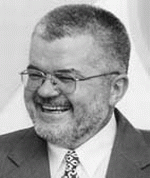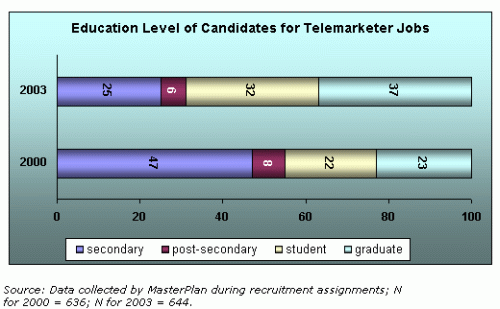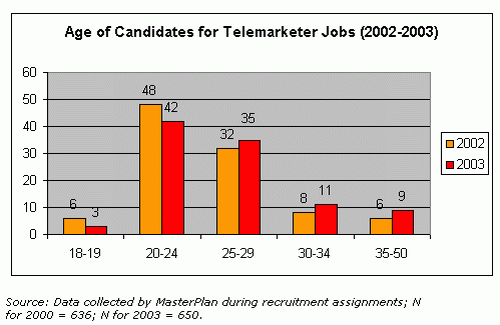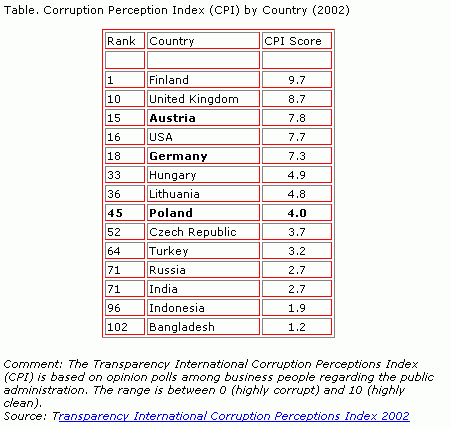
 The last couple of years have witnessed a great boom in offshore outsourcing. Since 1996 American companies have been setting up call centres in India, the Philippines, the Caribbean and Canada. The main reason is to cut personnel costs. So what are the chances that call centres in Germany, Austria and Switzerland will look to Poland to do the same on a large-scale? The truth is that if we assume that staffing costs account for 60 to 70 per cent of the cost of running a call centre then any reduction in these costs would have a direct impact on a company’s bottom line.
The last couple of years have witnessed a great boom in offshore outsourcing. Since 1996 American companies have been setting up call centres in India, the Philippines, the Caribbean and Canada. The main reason is to cut personnel costs. So what are the chances that call centres in Germany, Austria and Switzerland will look to Poland to do the same on a large-scale? The truth is that if we assume that staffing costs account for 60 to 70 per cent of the cost of running a call centre then any reduction in these costs would have a direct impact on a company’s bottom line.
Call Centre Magazine estimates that the US lost around 100,000 jobs to other countries in the call centre business. The problem is so serious that eight state legislatures have drafted bills to forbid the export of call centre jobs. However none of these bills have (yet) come into law. There are people in favour of these bills, but others are opposed.
Proponents say that exporting jobs cuts tax revenue and increases unemployed wage costs. Opponents say that it will cost taxpayers more to migrate away from global outsourcing processes and that exporting low-paying jobs can go hand in hand with creating much higher-paying jobs for Americans.
In Europe the first British call centres moved to Australia and New Zealand. These countries are culturally compatible with the United Kingdom and make it possible to cut costs. India is the most popular place for Americans and the British. French Teleperformance contacts French-speaking people from a call centre in Tunis.
Terms and Conditions for Investing
Poland is considered to be the best country in Central Europe ever since A.T. Kearney started doing its research in 1998. In 2002 heads of the Global 1000 companies said that Poland ranked 11th in terms of the countries they would most eagerly invest in.
In 1990 Germany replaced the USSR in becoming Poland’s largest trade partner. It holds pole position until today. Germany is responsible for about one-third of Poland’s foreign trade. Poland is also one of Germany’s most important trade partners in CEE (right behind the Czech Republic). In 2002 bilateral trade reached approx. EUR 30 billion (up more than 5.4 per cent over the previous year).
Germany ranks third in terms of foreign investors in Poland (behind France and the US). However if we take under account the investments made by German small business (approximately 6000 companies), which are not included in the above statistics, we can assume that Germany is still the biggest foreign investor in Poland, and not only in terms of the number of projects carried out.
Both foreign and domestic investors are entitled to – under the Investment Financial Support Act of April 19, 2002 to receive financial support from the Minister of Economy:
As a percentage of the new investment:
New investments can receive a 50 per cent (max.) reimbursement under the regional assistance funds. This means that new investments can receive anywhere from 15 per cent to 25 per cent reimbursement.
For example in the Warsaw and Poznañ sub-region you can receive a 15 per cent reimbursement (regional assistance in this region is 30 per cent), but in the central Silesia region (e.g. Katowice), in Cracow, Wroc³aw and the Tri-Cities Area (Gdañsk, Gdynia and Sopot) – 25 per cent (assistance is at 50 per cent).
Assuming that a company is investing in a new project worth EUR 23 million and the qualified cost of the investment is EUR 20 million the business can apply for a EUR 5 million contribution.
For new jobs:
The maximum limit of assistance for creating one new job is EUR 4000, however the assistance cannot exceed the equivalent of two-years of employment costs for new hires.
To train new employees:
A business can receive a training allowance of 1,150 EUR per employee. Furthermore, pursuant to the public assistance laws the assistance cannot exceed 25 per cent of the training costs of specialized training and 50 per cent of the cost of general training.
Entrepreneurs can apply for public assistance funding if they meet at least one of the following conditions:
1. The project most require at least 10 million EURO;
2. In the event of expanding or modernization an existing company – the investment requirement must be at least EUR 500,000 and must be connected to at least 100 jobs (or 50 jobs in ‘support zones’) for at least a five-year period;
3. The new investment brings in at least 20 new jobs for at least a five-year period.
Special Economic Zones offer very good investment conditions. If the investor employees at least 50 or a 100 employees (depending on the specific zone), he or she will receive tax relief for 20 years, an income tax-exemption for 10 years and income-tax relief for another 10 years.
Costs
The wage difference between Warsaw and other large cities is very significant (around 30 per cent), as is the difference between big cities and small towns.
There is also a big difference between the various parts of the country (salaries in 9 out of the 16 Polish provinces are below 70 per cent of the Mazowsze salary levels; salaries in none of the voivodships exceed 80 per cent of the Mazowsze levels.
A telemarketer’s wage in Warsaw is 7 PLN (EUR 1.6) per hour, which amounts to less than EUR 300 per month. The monthly salary of a bilingual student or a young graduate will not top EUR 400 and will only slightly change depending on location.
This means that the average salary is 1/4th to 1/3rd of that in Brandenburg, which yields 64 per cent of the German average salary. The labour cost is the most important element of a call centre’s costs because it accounts for 60 per cent-70 per cent of its operating budget.
Labour Market Flexibility
The Polish labour market is one of the most liberal in Europe. The World Bank Labour Liberalism Index takes into account the legal protection afforded to an employees, the strength of labour unions and income tax on employees.
In 2002 only Hungary had a more liberal labour market. The Czech Republic, Slovakia, Estonia and Slovenia were far behind. The market was less regulated than Germany and even less than the EU and candidate country average.
Employers were granted additional rights by laws and amendments introduced in 2002 and 2003. The most important changes include:
· Cutting overtime costs;
· Reducing the sick leave payment obligation from 35 to 33 days;
· Eliminating the need to pay for the first day of sick leave if the leave lasts no more than 6 days;
· Expanding part-time hiring options.
Access to a Qualified Labour Force

The profile of a candidate for telemarketer’s job has changed significantly in the last couple of years: While back in 2000 almost half of all candidates had a secondary-school education, in the year 2003 only about a quarter of all candidates did not continue their education after secondary school.
During this period the proportion of college graduates rose from 23 per cent to 37 per cent, while the number of students grew by 10 per cent.

The improvement in telemarketer candidate education can be accounted to, most probably, the fact that telemarketing is looked at more and more as a career. Therefore it is attracting people who are better educated and more mature.
Cultural Affinity
Although pointing out any direct cultural similarities between Germans and Poles would be difficult (different language groups, negative stereotypes and years of mutual distrust), the last decade has brought some very positive changes in this respect.
These positive changes have been driven by the fact that the borders opened up, travelling has been made easier, Germans began investing in Poland and Poland will soon be a member of the EU (May 2004).
Twenty-somethings who work in Polish call centres were never the subject of the anti-German propaganda because when they started school if anything they were the beneficiaries of considerable German aid during Polish martial law from German churches, institutions and regular citizens.
They grew up during a time when the market economy was being built, the borders opened up to tourists and foreign companies began investing.
The German ethnic minority (approx. 300,000-500,000 people) is the only minority in Poland with representation in Polish parliament. People in the German ethnic minority are usually dual citizens (Polish and German). Ninety percent of them reside in the Opole province and in Upper Silesia.
Others reside in the Warminsko-Mazurskie province (the Olsztyn area), Pomorenia (the majority in Gdañsk), the Kujawskie, Zachodnio-Pomorskie and Lower Silesia provinces and around the city of £ód. German speakers also live along the Polish-German border.
German-speaking Skills
German-speaking skills are interconnected with cultural affinity, but not in a direct fashion.
The German language is the second most popular mandatory language taught in Polish schools (second to English). Out of the eight million Polish elementary and secondary school students about 25 per cent study German (they are taught by almost 8,000 teachers).
Approximately 150 teachers from Germany work for the Ministry of Education in language colleges, bilingual secondary schools and schools for the German ethnic minority.
A broad range of institutions from German-speaking countries are present in Poland to promote the German language and German culture, including the Goethe Institute in Warsaw and Cracow, The German Academic Exchange Authority (DAAD), the Konrad Adenauer Foundation and the Friedrich Ebert Foundation.
Various institutions and foundations have effectively helped to equip language colleges, bilingual secondary schools and many schools attended by the German ethnic minority. The most active in this respect are the R. Bosch Foundation, the Foreign Relations Institute and the Polish-German Cooperation Funds.
Telecommunications Service Liberalisation
The first step toward liberalizing the Polish telecom market was the commercialisation of the state-owned telecom. France Telecom owns the biggest single chunk of Telekomunikacja Polska S.A. (33.93 per cent) and the federal government (represented by the State Treasury) has only a 17.92 per cent stake.
The Polish telecom market is being deregulated slowly, but the changes are becoming apparent.
The first step was to set up local duopolies, where competitors were permitted to enter a geographically restricted area that had very limited customer potential. Start-ups went head to head with the national giant.
After that competitors were allowed to offer domestic long-distance service. In a very short period of time Niezale¿ny Operator Miêdzystrefowy (NOM) gained a 25 per cent market share, but had to back out because of restrictive VAT regulations and the Personal Information Protection Act.
The third step was to liberalise international traffic, which formally took place in 2003.
The non-traditional telecom technologies are also gaining speed: cell phones and VoIP. Cell phones (the number of which exceeded the number of landline phones in 2002) managed to operate independent of the national telecom, but it was VoIP that finally broke the Telekomunikacja Polska S.A. monopoly.
Telecommunications Services Prices
NOM, Netia, Tele2, Energis and Telefonia Dialog compete with TP S.A. for domestic long-distance, international long distance and cell-phone connections. In March 2003 Crowley also started to compete for the same business. Dialog only serves its own subscribers and Energis focuses only on corporate traffic.
VoIP became the unquestionable leader of international traffic (91 per cent of customers who use VoIP use it for international phone traffic). VoIP prices fell as the technology became more popular and its suppliers bigger in number.
For example when a call centre uses 100,000 minutes per month (second billing) a minute of call time from Poland to Germany can cost 0.66 PLN per minute including VAT (EUR 0.1517) and that’s for a fixed-line connection, not VoIP. The customer isn’t charged for any investments associated with the connection.
Intellectual Property Right and Personal Information Protection
The Polish Personal Information Protection Act came into effect in 1997 and complies with EU regulations. Poland has also adopted the Robinson List (the do-not-call list). It is still not possible to evaluate the impact of the Personal Information Protection Act of August 29, 1997. Society at large is becoming increasingly aware of the consequences associated with the protection of personal information.
The media point to drastic infringements (like finding bank statements in dumpsters). However none of these instances have found their way into court, which could pave the way for practical interpretations of the law.
According to the Business Software Alliance (BSA) – an organization representing the largest software producers – the scale of software piracy in Poland (intellectual property rights infringements) was at 40 per cent in 2001 worldwide and 53 per cent in Poland. Although the Polish piracy rate is high it does not exceed the region’s average.
Telemarketing Ethics Code
The Direct Marketing Association’s (SMB) ethics code was passed on June 22, 1999 at a meeting of the General Assembly. Although formally speaking only members of the SMB are obligated to follow the rules they quickly because a source of professional standards.
These standards include:
· Telemarketers can call people between 8am and 9pm on weekdays and between 10 am and 9pm on Saturdays, unless agreed to otherwise between the two callers.
· Predictive dialers can only be used to call businesses and people that are in a database (random number dialing is forbidden).
· If calls are automatically answered and queued a customer should be told whether or not he is charged for the time. Furthermore, a customer should not wait more than 30 seconds on hold without being told that he or she can be called back or asked to hold longer.
· When a telemarketer calls a customer he or she has to introduce him or herself stating their first and last name and the company they are calling for. Upon request they must also give the phone and address of the company where they or the company on behalf of which they are calling can be contacted.
· The telemarketer makes sure that he or she is speaking to a person who can have a conversation (for example he or she avoids speaking to a minor).
· The telemarketer clearly states the purpose of the conversation.
· The telemarketer then makes sure that he or she can continue the conversation and is prepared to end the conversation if the other caller wishes to do so.
· If necessary, at the end of the conversation the telemarketer makes sure that the other party knows what the mutual obligations are and what will happen as the result of the conversation.
· Companies employing telemarketers are obligated to monitor their employees’ conversation in order to improve the quality of those calls and to protect the other person from any unethical behaviour on the part of the telemarketers.
· Monitoring the telemarketers’ job-related calls does not infringe on their right to privacy.
· Employees should accept the monitoring of their call sin writing.
· The call monitoring rules and regulations should be available to employees and should outline the manner and frequency with which calls are monitored and set out the way employees should be notified of how the call reports will be used.
· Telemarketers abide by the Robinson List, so they do not call people who do not wish to be called.
Small in-house call centres usually do not have the equipment needed to monitor calls. However apart from that, you could say that experienced call centre operators have ethics in their blood.
Off-shore Outsourcing: Options
Pure offshore outsourcing. Outsourcing telemarketing operations directly to a Polish call centre is one of the fundamental forms of outsourcing. Before choosing a call centre one needs to research the market to learn about the services, capabilities, flexibility, management, personnel and reputation among customers.
It is also very important that a background check be run on each of the short-listed centres. After a decision is made the customer must also communicate with the centre on an ongoing basis.
Onshore outsourcing. This is when a German call centre, working for a German customer, sub-contracts a part of the job to a Polish call centre. The customer doesn’t have to change the way they work nor what they are used to because they only contact their well-know German centre.
The German call centre is then charged with getting to know the Polish call centre market and to carry out all of the tasks mentioned above, including having a good working relationship with the Polish call centre.
Onshore outsourcing may be good for the customer, but in this case it has less of an opportunity to learn about the type of service – pertaining to its relationship with its customers – that is being performed.
Practically speaking this is a multi-faceted option, because it can be integrated with the mother company to a varying degree. This pertains to the operating philosophy, standards and procedures, training methods and IT systems (either a real-time integrated database or a replicated database).
Do-it-yourself offshore. In this case a German company sets up a branch or a subsidiary. This makes it possible to better integrate the contractor with the mother company and allows for better flexibility in allocating jobs and resources (no need to renegotiate contracts).
Managers of the world’s 1000 biggest companies rated this as the most risky option. However it would be more just to say that this option requires the most effort when adapting operating standards and requires very clear communication between the mother company and the call centre abroad. This option requires a lot of effort but is feasible.
Twin Call Centres: cross-border organization. Investor Centre Ostbrandenburg (ICOB) in Frankfurt am Oder has been promoting this, the most conservative of solutions, for the past couple of years. The idea is to use a German location, German infrastructure and Polish telemarketers.
Risks
Human
Companies have been outsourcing telemarketing long enough for some risk-analysis studies to be performed. For example, NFO conducted a study of 1000 employees who work for 19 call centres in India. It turned out that more than half of all employees burnt out and left work.
The main problems included irregular work hours, pretending to be somebody else (operators had to introduce themselves using Anglo-Saxon first and last names), having to constantly improve and use a different accent as well as changes in their personal and family lives.
Changes in their personal lives resulted from the big time difference between India and the US and Great Britain. Their high motivation quickly eroded due to the pressure they had on the job.
Another study shows that India, which is popular in terms of offshore call centre outsourcing, has the highest employee turnover in the region, problems with finding people to work, difficulty with finding qualified trainers and problems with telemarketer productivity.
However these difficulties have not slowed down the rate at which offshore outsourcing is growing. Almost all of these difficulties (expect maybe for the time difference, but not the shift schedule, and the role-playing of a foreigner in your own country, namely the need to learn a new accent, intonation, phrasing and assuming names) are a part of a telemarketer’s normal skills set.
Legal and ethical
It was already mentioned that Polish law protects personal information on par with EU standards. The one thing that can be problematic for a customer is a very slow court system. Legal cases take years to settle. Therefore all business deals should foresee good international arbitrage.
Poland has also been touched by the hand of corruption.

Conclusion
Customer service is following the industrial sector and just like industry did years ago it is also moving off shore.
Polish workers are high qualified, productive and still much cheaper than EU workers. They can help German, Austrian and Swiss companies sell, care for customers and collect debt much more efficiently than by outsourcing in their own countries. All of those possibilities are within reach.
Polish call centres can also be used to reach out from Germany, Austria and Switzerland to customers, prospects and debtors in Russia and the Ukraine.
Marian J. Kostecki
kostecki@masterplan.com.pl
2003-09-23
Marian J. Kostecki is a consultant and trainer in the field of call centre operations. He opened the first ever contract call centre in Poland. He was one of the founders of the Telemarketing Association in Poland and is now working on establishing the Association of Call Centre Managers. He has also established the Telemarketing Academy. He has published extensively and runs a vortal dedicated to customer relationship management, telemarketing and CRM: http://masterplan.com.pl .
Consultoria – Advice
Em Foco – Opinião

